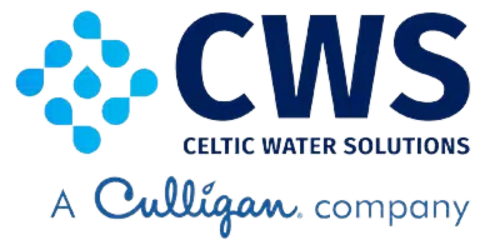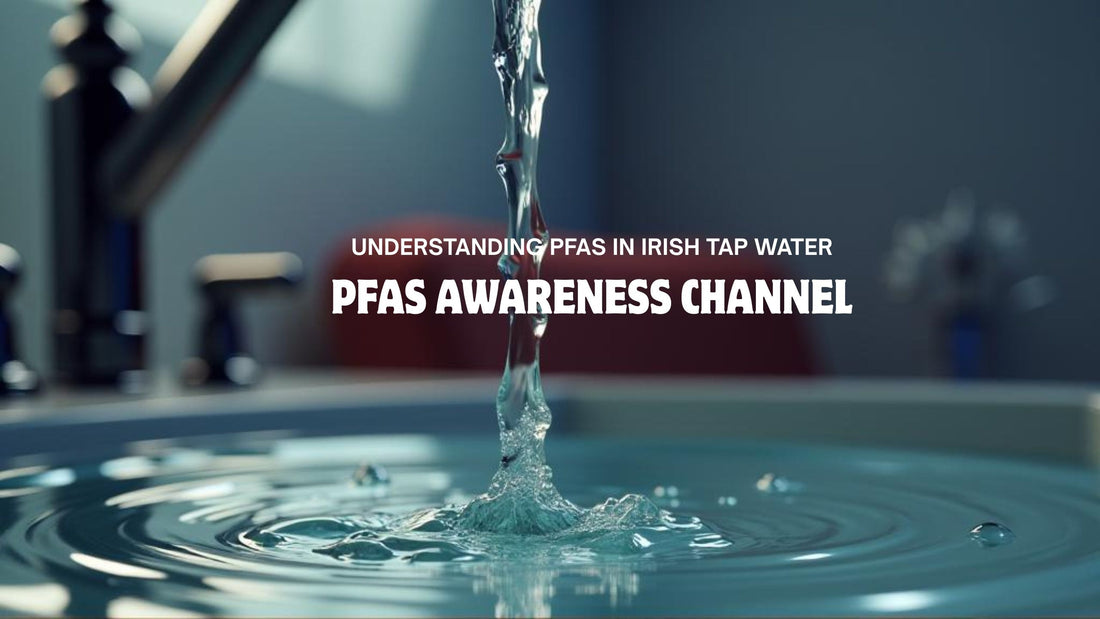Introduction: What Are PFAS and Why Should Ireland Be Concerned?
In recent years, PFAS—short for Per- and Polyfluoroalkyl Substances—have earned the nickname "forever chemicals" due to their stubborn resistance to breaking down in the environment and the human body. These synthetic chemicals are widely used in firefighting foams, non-stick cookware, water-repellent clothing, and industrial processes. But their durability comes with a cost—they are now showing up in Ireland’s drinking water, including locations near airports and industrial zones.
The Environmental Protection Agency (EPA) Ireland has raised the alarm, particularly following contamination concerns near Irish airports in 2024, where firefighting foams containing PFAS were frequently used. This has led Irish households to ask the crucial question: Can reverse osmosis (RO) remove PFAS from tap water? And more importantly, what is the best PFAS water filter in Ireland to protect your home and health?
Let’s explore everything you need to know.
What Are PFAS? A Quick Breakdown
PFAS are a group of over 4,700 man-made chemicals developed in the 1940s. They are found in:
-
Firefighting foams
-
Fast food wrappers
-
Waterproof clothing
-
Stain-resistant fabrics
-
Cookware like Teflon pans
They’re so widespread that it’s estimated 99% of humans already have PFAS in their bloodstreams. These chemicals are linked to serious health issues including:
-
Thyroid disorders
-
Hormonal imbalances
-
Immune system suppression
-
Kidney and liver damage
-
Certain types of cancer
Because they don't naturally degrade, PFAS accumulate over time, especially in water sources. This is a serious concern for Irish communities relying on public or private wells near contaminated zones.
PFAS in Irish Tap Water – Is It Really a Problem?
Yes. The concern is growing.
According to EPA.ie, PFAS contamination has been detected in water samples taken from Dublin, Cork, Shannon, and other regions. Airports, military sites, and waste management facilities are known hotspots.
In late 2024, a shocking report from EPA Ireland revealed elevated PFAS levels in water supplies near Shannon Airport and surrounding residential areas. The news sent shockwaves through the country, especially among families with young children.
With no current enforceable PFAS limit in Irish drinking water regulations, many people are left wondering how to safeguard their water—and their health.
How Do PFAS Enter Drinking Water Supplies?
PFAS typically reach drinking water through:
-
Firefighting foam runoff near airports and fire stations
-
Landfill leachate and improper waste disposal
-
Industrial discharges
-
Contaminated rainwater infiltration into groundwater supplies
Once in the environment, PFAS seep into groundwater aquifers and rivers, which serve as the primary water sources for many homes across Ireland.
Can Reverse Osmosis Remove PFAS from Tap Water?
Yes—reverse osmosis (RO) is one of the most effective ways to remove PFAS from drinking water.
RO systems use a semi-permeable membrane to remove contaminants at the molecular level. These systems can remove up to 99% of PFAS, including the most studied varieties like PFOA and PFOS.
The National Institute of Environmental Health Sciences and multiple EPA-supported studies confirm that RO systems consistently reduce PFAS levels in water to non-detectable or very low concentrations.
Why Reverse Osmosis is the Best PFAS Water Filter in Ireland
Here’s why reverse osmosis is highly recommended for Irish homes concerned about PFAS:
✅ High Removal Efficiency
Removes a wide range of PFAS compounds, along with other contaminants like lead, nitrates, chlorine, and arsenic.
✅ Proven Technology
Used by hospitals, food processing units, and even bottled water companies in Ireland.
✅ Compact and Easy to Install
Modern under-sink RO systems are slim, quiet, and user-friendly—perfect for Irish kitchens.
✅ Peace of Mind
Knowing you’re drinking PFAS-free water is worth the investment in health and safety.
How RO Compares with Other PFAS Filtration Methods
| Filtration Method | PFAS Removal Efficiency | Suitable for Ireland? |
|---|---|---|
| Reverse Osmosis (RO) | ★★★★★ 90–99% | ✅ Yes |
| Granular Activated Carbon (GAC) | ★★★★ 70–90% | ✅ Yes |
| Ion Exchange Resins | ★★★ 50–70% | ⚠ Partially |
| Boiling Water | ☆☆☆ 0% | ❌ Not effective |
| UV or Ozone Treatment | ☆☆☆ 0–10% | ❌ Not recommended |
Clearly, RO and GAC systems are your best options. But if you want the highest level of protection, RO is the gold standard.
Top RO Systems in Ireland That Remove PFAS
Here are some recommended PFAS water filter systems available in Ireland:
1. Culligan AC Slim RO
-
PFAS removal: Up to 99%
-
Compact design for small Irish kitchens
-
Includes sediment + carbon + RO + post-carbon stages
2. Culligan Compact RO with Remineraliser
-
Adds back essential minerals post-filtration
-
Ideal for health-conscious families
-
Fully compliant with EU water safety standards
3. Celtic Water Solutions Under Sink RO
-
Multi-stage filtration including carbon block + RO membrane
-
Designed specifically for Irish municipal and well water
-
Professional installation available nationwide
How to Know If Your Irish Tap Water Has PFAS
Unfortunately, PFAS are tasteless, odorless, and colorless, so you can’t detect them by taste or smell. But here are your options:
-
Get a Water Test: Ask your local water supplier or hire a private testing lab in Ireland. Look for PFOS, PFOA, and GenX in the report.
-
Check EPA.ie Reports: EPA publishes regular monitoring updates about PFAS hotspots.
-
Use Home Test Kits: Limited availability in Ireland, but some PFAS rapid test strips can indicate possible contamination.
Who Should Be Most Concerned?
PFAS exposure risk is higher if you:
-
Live near airports, fire stations, or industrial estates
-
Use private well water
-
Have children, pregnant women, or immunocompromised individuals at home
-
Use tap water for cooking, tea, or baby formula
In these cases, installing a PFAS-certified RO system is strongly advised.
Are There Any Government Regulations for PFAS in Ireland?
As of mid-2025, Ireland does not have legally enforceable PFAS limits in drinking water, though EU discussions are underway.
However, the EU Drinking Water Directive will soon require member states to monitor and eventually regulate the sum of 20 PFAS substances. Ireland is expected to adopt these standards by 2026.
In the meantime, it’s up to consumers to protect themselves.
Conclusion: Protect Your Family from PFAS – Choose a Certified RO System
With mounting evidence of PFAS contamination in Irish tap water, especially after the high-profile 2024 airport case, more households are seeking real solutions. Fortunately, reverse osmosis systems offer a powerful, proven defense.
If you’re searching for the best PFAS water filter in Ireland, look for certified RO systems from trusted providers like Culligan or Celtic Water Solutions. They not only reduce PFAS but improve overall water quality—giving your family safe, clean, and refreshing drinking water.
Don’t wait for regulations to catch up—take control of your water today.

